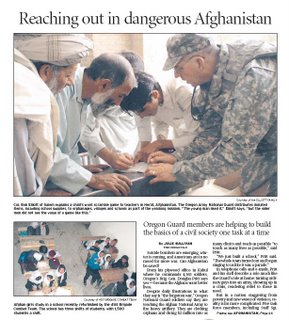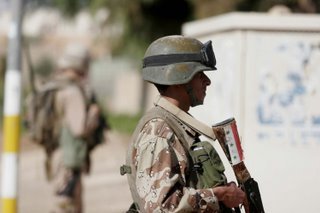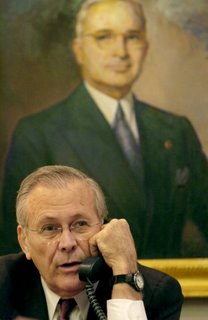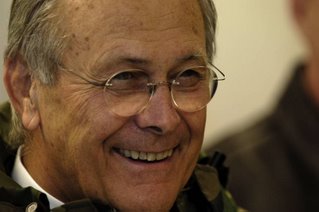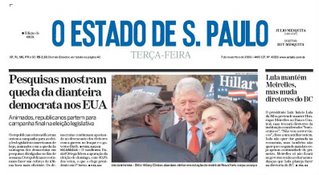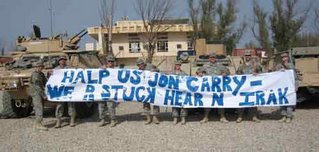
An AP story tells of Senator-elect Jim Webb's desire to avoid the President in a White House reception for new Congress members.
Democratic Sen.-elect Jim Webb avoided the receiving line during a recent White House reception for new members of Congress and had a chilly exchange with President Bush over the Iraq war and his Marine son.
"How's your boy?" Webb, in an interview Wednesday, recalled Bush asking during the reception two weeks ago.
"I told him I'd like to get them out of Iraq," Webb said.
"That's not what I asked. How's your boy?" the president replied, according to Webb.
At that point, Webb said, Bush got a response similar to what reporters and others who had asked Webb about Lance Cpl. Jimmy Webb, 24, have received since the young man left for Iraq around Labor Day: "I told him that was between my boy and me."
Webb, a leading critic of the Iraq war, said that he had avoided the receiving line and photo op with Bush, but that the president found him.
It was a White House reception for crying out loud. Who did Webb expect to meet there? And why act offended when the host seeks you out and asks a question any normal, caring person would ask? Maybe the President should have acted like he didn't know Webb from a hill of beans or that Webb's son was serving in Iraq. Of course, then the story would have been that President Bush doesn't care enough about the troops to know that a freshman Democrat Senator has a son serving.
Webb was Secretary of the Navy under President Reagan. He obviously didn't learn anything from Reagan about the importance of civility and treating leaders of the other party, not to mention the President, with respect.
Hopefully, in the next six years he'll learn some manners he missed during his time serving under President Reagan.
